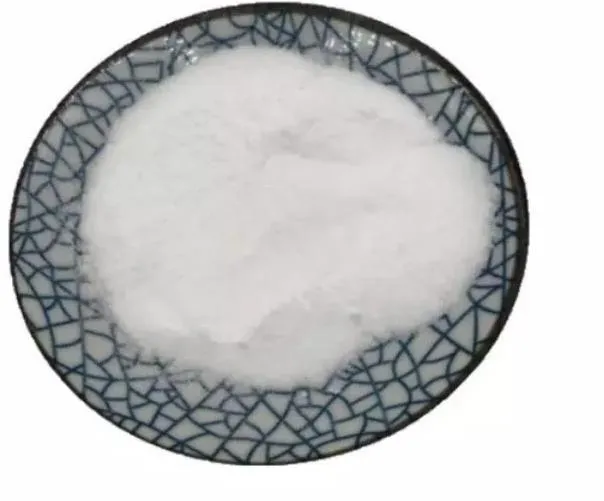Warning: Undefined array key "title" in /home/www/wwwroot/HTML/www.exportstart.com/wp-content/themes/1198/header.php on line 6
Warning: Undefined array key "file" in /home/www/wwwroot/HTML/www.exportstart.com/wp-content/themes/1198/header.php on line 7
Warning: Undefined array key "title" in /home/www/wwwroot/HTML/www.exportstart.com/wp-content/themes/1198/header.php on line 7
Warning: Undefined array key "title" in /home/www/wwwroot/HTML/www.exportstart.com/wp-content/themes/1198/header.php on line 7
- Afrikaans
- Albanian
- Amharic
- Arabic
- Armenian
- Azerbaijani
- Basque
- Belarusian
- Bengali
- Bosnian
- Bulgarian
- Catalan
- Cebuano
- China
- China (Taiwan)
- Corsican
- Croatian
- Czech
- Danish
- Dutch
- English
- Esperanto
- Estonian
- Finnish
- French
- Frisian
- Galician
- Georgian
- German
- Greek
- Gujarati
- Haitian Creole
- hausa
- hawaiian
- Hebrew
- Hindi
- Miao
- Hungarian
- Icelandic
- igbo
- Indonesian
- irish
- Italian
- Japanese
- Javanese
- Kannada
- kazakh
- Khmer
- Rwandese
- Korean
- Kurdish
- Kyrgyz
- Lao
- Latin
- Latvian
- Lithuanian
- Luxembourgish
- Macedonian
- Malgashi
- Malay
- Malayalam
- Maltese
- Maori
- Marathi
- Mongolian
- Myanmar
- Nepali
- Norwegian
- Norwegian
- Occitan
- Pashto
- Persian
- Polish
- Portuguese
- Punjabi
- Romanian
- Russian
- Samoan
- Scottish Gaelic
- Serbian
- Sesotho
- Shona
- Sindhi
- Sinhala
- Slovak
- Slovenian
- Somali
- Spanish
- Sundanese
- Swahili
- Swedish
- Tagalog
- Tajik
- Tamil
- Tatar
- Telugu
- Thai
- Turkish
- Turkmen
- Ukrainian
- Urdu
- Uighur
- Uzbek
- Vietnamese
- Welsh
- Bantu
- Yiddish
- Yoruba
- Zulu
Sep . 30, 2024 06:59 Back to list
Understanding the Benefits and Uses of Propylene Glycol in Various Industries
Understanding Propylene Glycol Properties, Uses, and Safety
Propylene glycol, a colorless, odorless, and hygroscopic compound, is a synthetic organic compound with the chemical formula C3H8O2. It is a type of glycol, which is a class of alcohols characterized by the presence of two hydroxyl (-OH) groups. The compound has garnered attention for its versatility and functionality in various industries, ranging from food and pharmaceuticals to personal care and industrial applications.
Properties of Propylene Glycol
Propylene glycol exhibits several properties that make it a valuable ingredient in various applications. It is highly soluble in water, ethanol, and chloroform, which allows it to act as an effective solvent. This solubility, combined with its low toxicity and antimicrobial properties, enhances its usability in products that require prolonged shelf life and stability.
One of the most notable characteristics of propylene glycol is its ability to retain moisture, a trait that is particularly beneficial in cosmetic and food applications. It has a moderate viscosity, making it easy to handle and mix with other compounds. It also has a relatively high boiling point, which helps in preventing evaporation when used in formulations.
Uses of Propylene Glycol
The applications of propylene glycol are extensive and varied. In the food industry, it is commonly used as a food additive (E1520) that serves as a humectant, solvent, and preservative. It helps maintain moisture in foods such as baked goods, dairy products, and flavored beverages, thereby improving texture and shelf-life. It is recognized as safe by the U.S. Food and Drug Administration (FDA) for use in food products, provided it is used within regulated limits.
propylene glycol is

In the pharmaceutical realm, propylene glycol is utilized as a solvent for oral, injectable, and topical medications. Its non-toxic nature and compatibility with a wide range of drugs make it an ideal choice for formulating various pharmaceutical products. Additionally, it is used as an excipient in ointments and creams, providing a blending medium that enhances the delivery of active ingredients.
The cosmetic and personal care industries also depend on propylene glycol for its excellent moisturizing properties. It is a common ingredient in skin care products, hair conditioners, and lotions, where it helps in retaining water and preventing dryness. Furthermore, it acts as a solvent for fragrances and other active ingredients, ensuring even distribution within the formulation.
Industrial applications of propylene glycol include its use as an anti-freeze agent, heat transfer fluid, and in hydraulic fluids. Its low toxicity makes it a preferable option in situations where traditional ethylene glycol poses health risks.
Safety Considerations
While propylene glycol is generally recognized as safe for use, it is essential to adhere to recommended guidelines to ensure its applications do not pose health risks. High concentrations of propylene glycol can lead to skin irritation or allergic reactions in some individuals, particularly in cosmetic formulations. Regulatory agencies such as the FDA and the European Food Safety Authority (EFSA) continuously monitor its safety and establish limits on its use in various applications to protect consumer health.
In conclusion, propylene glycol stands out as a multifaceted compound with a broad range of applications across several industries. Its moisture-retaining properties, safety profile, and effectiveness as a solvent make it a valuable component in food, pharmaceuticals, personal care, and industrial products. As industries continue to evolve and develop new formulations, the demand for propylene glycol is likely to remain strong, underscoring the importance of ongoing research and adherence to safety regulations in its use.
Latest news
-
Certifications for Vegetarian and Xanthan Gum Vegetarian
NewsJun.17,2025
-
Sustainability Trends Reshaping the SLES N70 Market
NewsJun.17,2025
-
Propylene Glycol Use in Vaccines: Balancing Function and Perception
NewsJun.17,2025
-
Petroleum Jelly in Skincare: Balancing Benefits and Backlash
NewsJun.17,2025
-
Energy Price Volatility and Ripple Effect on Caprolactam Markets
NewsJun.17,2025
-
Spectroscopic Techniques for Adipic Acid Molecular Weight
NewsJun.17,2025

